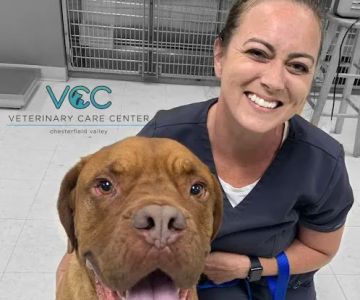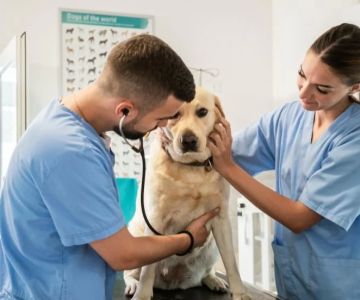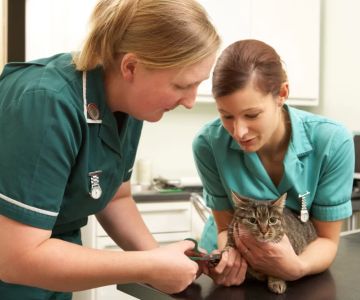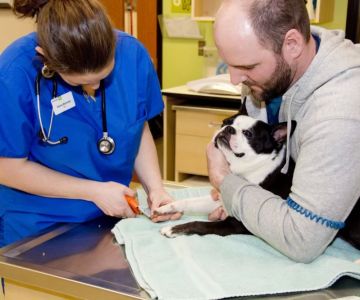What Major to Be a Veterinarian: A Comprehensive Guide
Becoming a veterinarian is a fulfilling career choice for those passionate about animals and animal health. But before you can work with animals, you must first complete the necessary education. One of the most common questions prospective veterinarians ask is, "What major should I pursue to become a veterinarian?" In this article, we’ll explore the educational path you need to follow, along with helpful tips for making the most of your college experience.
1. Understanding the Role of a Veterinarian
Before diving into the specific major, it’s essential to understand what a veterinarian does. Veterinarians are medical professionals who diagnose and treat illnesses in animals. Their duties range from performing surgeries and administering vaccines to providing preventative care and offering health advice to pet owners. Veterinarians can specialize in various fields, such as small animal care, large animal care, exotic animal care, or even animal research.
Understanding the complexity and responsibilities of the role will help you make a more informed decision about your academic path. As you begin your studies, you'll be preparing for a career that requires not just medical knowledge but compassion, problem-solving skills, and the ability to handle difficult situations.
2. The Best Major for Aspiring Veterinarians
When considering which major to pursue, keep in mind that becoming a veterinarian typically requires a strong foundation in science. Most veterinary schools require applicants to complete undergraduate coursework in biology, chemistry, physics, and mathematics before applying to a veterinary program. Therefore, a major in the sciences is generally the best choice.
The most common and highly recommended majors for future veterinarians include:
- Animal Science: This major is tailored specifically to students who want to work with animals and includes courses on animal behavior, physiology, nutrition, and genetics.
- Biology: A broad scientific major, biology offers in-depth knowledge of living organisms and is a strong foundation for veterinary studies. It covers topics like microbiology, genetics, and anatomy.
- Pre-Veterinary Studies: Some universities offer a pre-veterinary track or program, which is a more focused path toward veterinary school. This program often includes the necessary science courses and may include specialized veterinary courses.
- Biomedical Sciences: This major emphasizes human and animal health, providing students with a solid foundation in both biological and medical sciences, ideal for those who are considering animal research or working in veterinary medicine.
- Wildlife Biology: For those interested in working with wildlife, this major focuses on the biology and conservation of wild animals, their habitats, and ecosystems.
While these majors are the most common, it's important to remember that veterinary schools accept applicants from a variety of academic backgrounds. The key is to ensure that your coursework meets the prerequisites for veterinary school admission.
3. Key Coursework to Complete
Regardless of your major, there are certain courses that will be essential for getting into veterinary school. Here are some of the key subjects you should focus on during your undergraduate studies:
- Biology: A strong understanding of biology is crucial for veterinary studies, covering everything from cellular biology to animal physiology.
- Chemistry: Organic chemistry, in particular, is essential for understanding medications and treatments in veterinary medicine.
- Physics: Physics is important for understanding the mechanics of the body and medical equipment used in animal care.
- Mathematics: Courses in algebra and calculus are often required, as they help with problem-solving and dosage calculations.
- Animal Anatomy and Physiology: These courses help students understand the physical structure and function of different animals' bodies.
- Veterinary Ethics and Communication: Veterinarians must be able to effectively communicate with pet owners, colleagues, and other professionals. These courses focus on ethics and communication skills in the field of veterinary medicine.
In addition to these core courses, veterinary schools may also value experience in animal care and volunteer work in related fields, such as animal shelters, zoos, or veterinary clinics.
4. Gaining Experience in Animal Care
While the right academic path is essential, gaining hands-on experience with animals is equally important. Most veterinary schools look for applicants who have experience working with animals in a practical setting. This experience can be obtained through internships, volunteer work, or part-time jobs at veterinary clinics, farms, zoos, or animal shelters.
Getting experience not only strengthens your application but also helps you gain a better understanding of animal care and the realities of working in the veterinary field. Some veterinary schools even have specific requirements for a minimum number of hours spent working with animals, so make sure to check the requirements for the schools you're interested in.
5. The Importance of Strong Academic Performance
Becoming a veterinarian requires more than just completing the right major and coursework. Strong academic performance is essential for getting into veterinary school, which is highly competitive. Veterinary programs often require a high GPA, particularly in the sciences, as well as strong letters of recommendation and relevant experience.
Additionally, preparing for and scoring well on the GRE (Graduate Record Examination) is often a requirement for veterinary school admissions. A good score on this exam, combined with your academic record and practical experience, will make you a competitive applicant.
6. Alternative Paths to Veterinary School
Although the traditional route to becoming a veterinarian involves completing an undergraduate degree in a science-related field, there are alternative paths. Some students may choose to pursue a Master's degree in a related field, such as animal science or biomedical sciences, before applying to veterinary school. This can be particularly helpful for students who want to enhance their qualifications or explore specific research interests.
Others may choose a non-traditional path if they are transitioning careers or have previous experience in a different field, like engineering. While the road may take longer, a background in engineering could provide valuable skills in problem-solving and analytical thinking that can be applied to veterinary medicine. However, additional coursework in biology, chemistry, and animal sciences would still be required to meet the prerequisites for veterinary school.
Conclusion
Deciding what major to pursue to become a veterinarian is a significant first step in your journey. While a major in biology, animal science, or biomedical sciences is the most direct path, what matters most is your commitment to learning, gaining hands-on experience with animals, and excelling in the required coursework. Whether you're starting your academic journey or transitioning from another field, dedication to your studies and gaining relevant experience will set you up for success in veterinary school and beyond.
If you're ready to take the next step toward becoming a veterinarian, remember to check the specific requirements of the veterinary schools you're interested in and plan accordingly. A career as a veterinarian can be incredibly rewarding, offering the chance to make a difference in the lives of animals and their owners.
<> SEO Title: What Major to Pursue to Become a Veterinarian: A Guide for Aspiring Vets SEO Keywords: what major to be a veterinarian, veterinarian major options, how to become a veterinarian, veterinary school prerequisites, veterinary education, best major for becoming a vet SEO Description: Learn what major to pursue to become a veterinarian, along with essential tips on coursework, experience, and academic performance needed for veterinary school. Start your veterinary career today.










